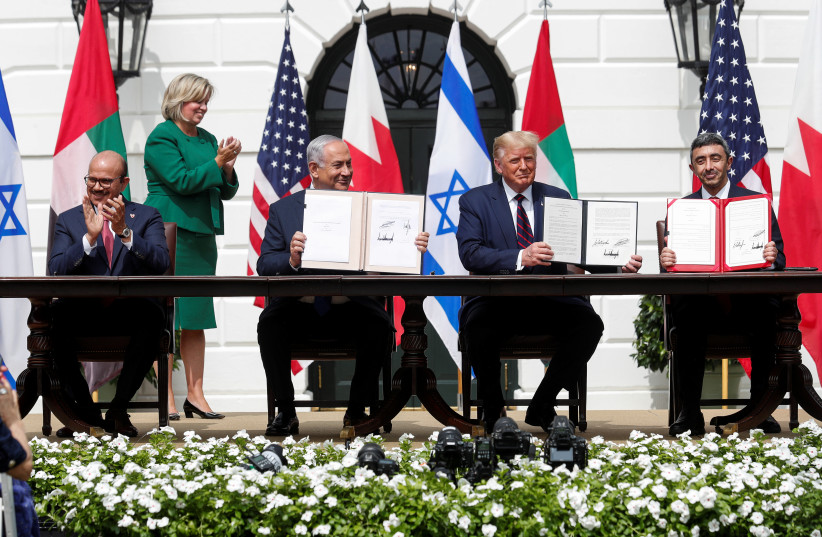A series of high level meetings with US and regional officials showcases how Washington wants to shore up its policy in the Middle East. On the broader level this comes in the wake of Franco-Greek meetings that underpinned a new defense deal between the countries. Israel is a key partner of Greece, Cyprus, France, Egypt, the US and many of the countries involved.
These partnerships include activities such as the Noble Dina naval exercise earlier this year and other groupings such as the East Med Gas Forum. As such, the US delegation in the region this week and next should be seen to be part of the wider network of friendships from Paris to Abu Dhabi.
The White House said on September 28 that “National Security Advisor Jake Sullivan, joined by White House Coordinator for the Middle East and North Africa Brett McGurk, will travel to Cairo, Egypt for official meetings tomorrow. The delegation will discuss Libya and also the Horn of Africa."
Sullivan will also discuss Egypt’s role in promoting security and prosperity for both Israelis and Palestinians following the visit by Israeli Prime Minister Naftali Bennett to Egypt earlier this month. After his travel in the region, Sullivan will host Israeli National Security Advisor Dr. Eyal Hulata in Washington on October 5 for follow-up discussions on these and other topics, as well as a meeting of the US-Israel Strategic Consultative Group.
There appears to more to this as well. The US is looking at Libya and also the role of Africa Command. In addition the US had said on September 27 that Sullivan would travel to Saudi Arabia and the UAE, “joined by... McGurk and US Special Envoy for Yemen Tim Lenderking. Mr. Sullivan will meet with senior leaders on a range of regional and global challenges.”
In Saudi Arabia the media said that Crown Prince Mohammed bin Salman affirmed the kingdom’s initiative to end Yemen’s conflict in talks with Sullivan, state news agency SPA reported on Wednesday. “The Crown Prince stressed the Saudi stance on the importance of reaching a comprehensive ceasefire under UN supervision, allowing oil shipments to enter Yemen's Red Sea port of Hodeidah and opening Sanaa International Airport to selected destinations aside from allowing humanitarian flights.”
Meanwhile, the National said that the Iranian-backed Houthis were close to surrounding Marib in Yemen. If Marib falls, it would be a setback for Saudi Arabia, which backs the government of Yemen.
Other issues are afoot as well. Greece and France recently signed a multibillion-euro military agreement. This came after French anger with a US-UK-Australia deal called Aukus. “Europeans must come out of their naivety,” said French president Emmanuel Macron. He praised the new “strategic partnership,” which appears to be an important development.

What else is happening in the region?
Jordan may be opening up more ties with Syria, including flights and trade. Last Friday, the leaders of three major democracies – Japan, India and Australia – also met with US President Joe Biden in what is called the “Quad summit.”
We can see in these partnerships – the US, UK, Australia; the US, Japan, India and Australia; the France-Greece alliance; the Israeli partnerships with France, Egypt, Greece and Cyprus; and the Abraham Accords – a system of emerging alliances and partnerships that stretch from Australia to France. Although these countries do not always agree, they share many interests.
The recent US delegation that came to Egypt, and also involved Sullivan apparently flying to Larnaca in Cyprus, is essential for regional stability. That the meetings are curtain raisers for US-Israel talks is also important.
